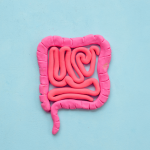
What happens if you take an Omega-3 Supplement for 30 days
July 6, 2025
5 Best Foods for Gut Health
August 22, 2025Vitamin B12 is an essential nutrient that plays a vital role in numerous bodily functions.
A deficiency in Vitamin B12 can lead to a range of serious health problems.
In this article, we’ll explore 5 key signs that may indicate your Vitamin B12 levels are too low.
Disclosure: Some of the links below are affiliate links. This means that, at zero cost to you, we will earn an affiliate commission if you click through the link and finalize a purchase.
1. Sore and Red Tongue
Vitamin B12 deficiency can cause a condition called glossitis, where the tongue becomes swollen, red, smooth, and painful.
This happens because B12 is vital for cell regeneration, and without enough of it, the cells on the tongue’s surface don’t regenerate properly, leading to inflammation and loss of papillae, the small bumps on the tongue.
This can make eating and speaking uncomfortable.
In one study, researchers found that vitamin B12 deficiency was strongly linked to atrophic glossitis (AG), a condition causing a smooth, red tongue.
They observed that patients with AG, especially those with more severe tongue atrophy, had significantly higher rates of B12 deficiency.
2. Memory Problems
Vitamin B12 is vital for maintaining healthy brain function as it supports the synthesis of neurotransmitters and the integrity of myelin, the protective sheath around nerves.
When B12 levels are low, nerve impulses can slow down, which can leave you experiencing cognitive issues such as memory loss, difficulty concentrating, and overall mental fogginess.
In a study of patients with minimal cognitive impairment, MCI, researchers found that vitamin B12 deficiency was linked to memory problems.
After B12 replacement therapy, 78% of deficient patients showed improved memory and cognitive scores, suggesting B12 supplementation can enhance these outcomes.
3. Numbness or Tingling
Vitamin B12 is essential for nerve health, as it plays a critical role in the formation and maintenance of myelin, the protective sheath around nerve fibers.
A deficiency can lead to nerve damage, resulting in sensations of numbness, tingling, or a “pins and needles” feeling, often in the hands and feet. This is known as peripheral neuropathy.
In one study of older adults, researchers found that poor vitamin B12 status was associated with worse sensory (light touch) and motor nerve function. This suggests that preventing and treating low B12 levels might be important for maintaining physical function in older adults.
4. Muscle Weakness
Vitamin B12 deficiency can lead to muscle weakness by impairing nerve function and red blood cell production.
As B12 is crucial for myelin formation, its deficiency disrupts nerve signals to muscles, causing them to weaken.
Additionally, reduced oxygen transport due to anemia further deprives muscles of the energy needed for optimal function.
In one study of older adults, researchers found that vitamin B12 deficiency adversely affected muscle strength and quality. After 3 months of oral B12 supplementation, deficient participants showed significant improvements in muscle strength and quality.
5. Vision Problems
Vitamin B12 is crucial for the health of your nervous system, including the nerves that transmit visual information from your eyes to your brain.
A severe or prolonged deficiency can lead to optic neuropathy, where the optic nerve is damaged.
This damage can manifest as disturbed or blurred vision, sensitivity to light, or even visual field defects.
While less common, these visual disturbances can worsen over time if the B12 deficiency remains unaddressed.
Early intervention with B12 supplementation can often reverse these symptoms and prevent permanent vision loss.
In a study looking at people with eye nerve issues found that not having enough vitamin B12 can damage the nerve that connects your eye to your brain.
This damage is called optic neuropathy. Less commonly, it can also cause optic neuritis, which is when that nerve becomes inflamed.
The researchers strongly recommend that if someone has optic neuritis and is found to be low in B12, they should get B12 replacement treatment right away to stop lasting damage to their vision.
How to combat Vitamin B12 Deficiency
The fastest way to combat vitamin B12 deficiency is to take a vitamin B12 supplement as seen by research. Typical dosage would be 500 mcg per day to 1000 mcg per day.
But we recommend you try to get Vitamin B12 with your diet. Good sources of vitamin b12 are clams, beef & beef liver, fatty fish and fortified cereals if you are vegan.
If you are interested in a good vitamin B12 supplement we have put a link in the description.
As with any supplement, it’s crucial to consult with a healthcare professional before starting vitamin B12 supplementation, especially if you have any underlying health conditions or are taking other medications.
They can help determine the appropriate dosage and ensure it’s safe for you.
